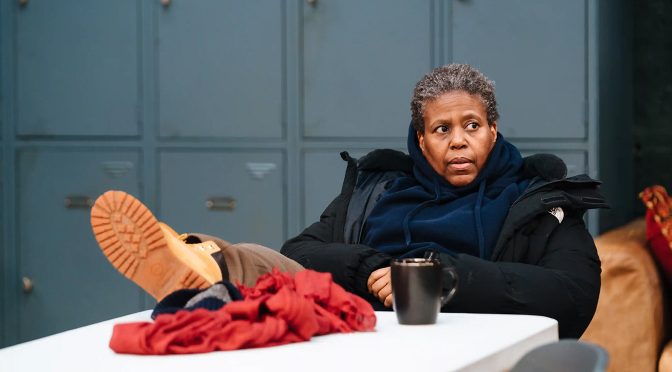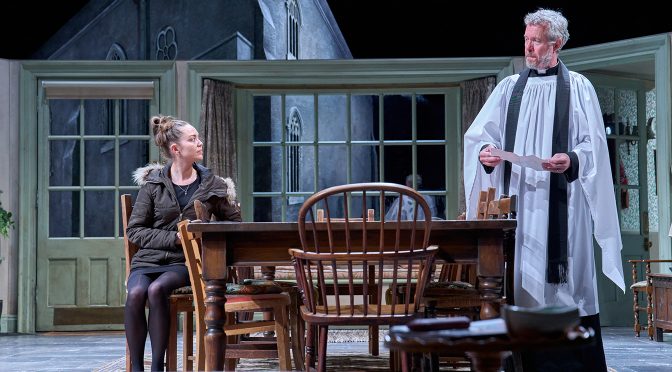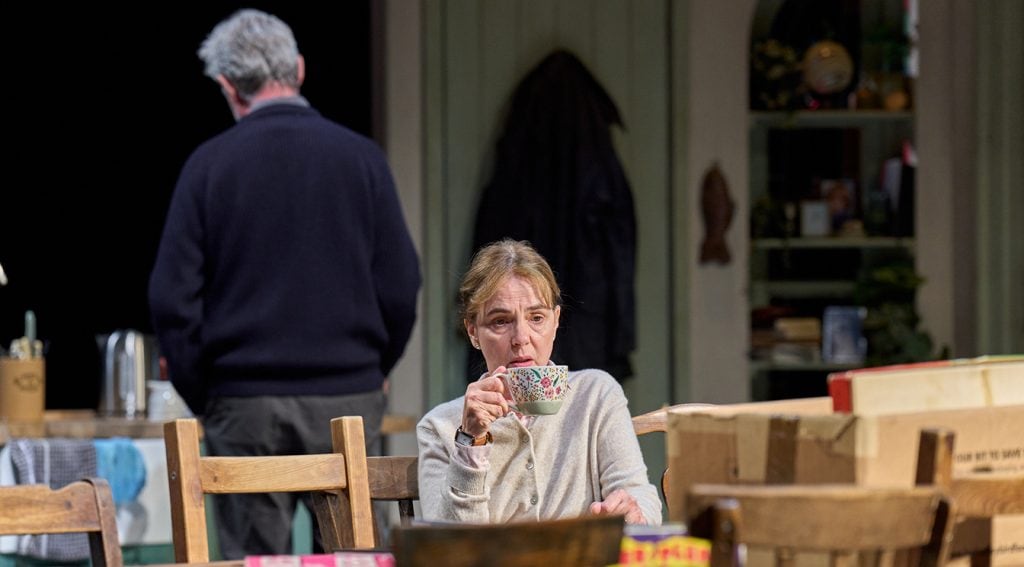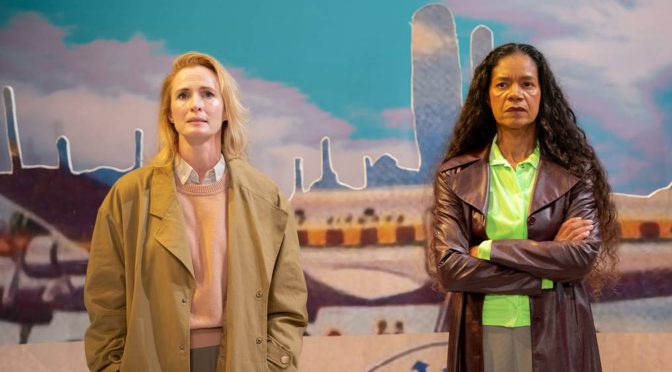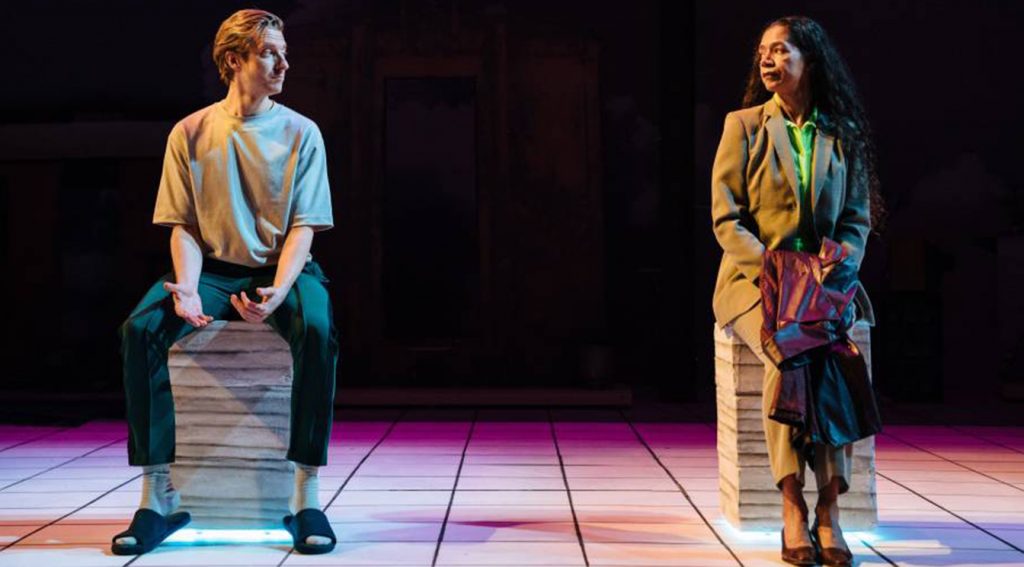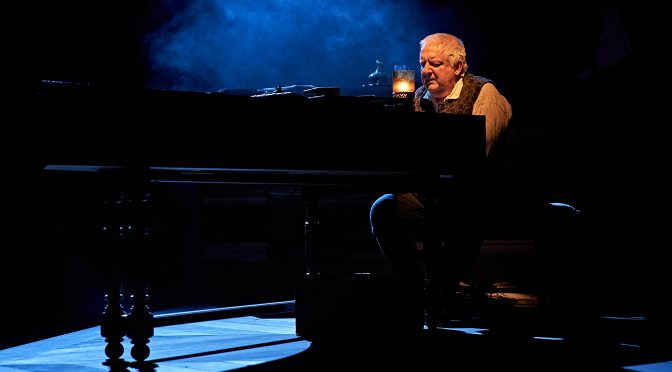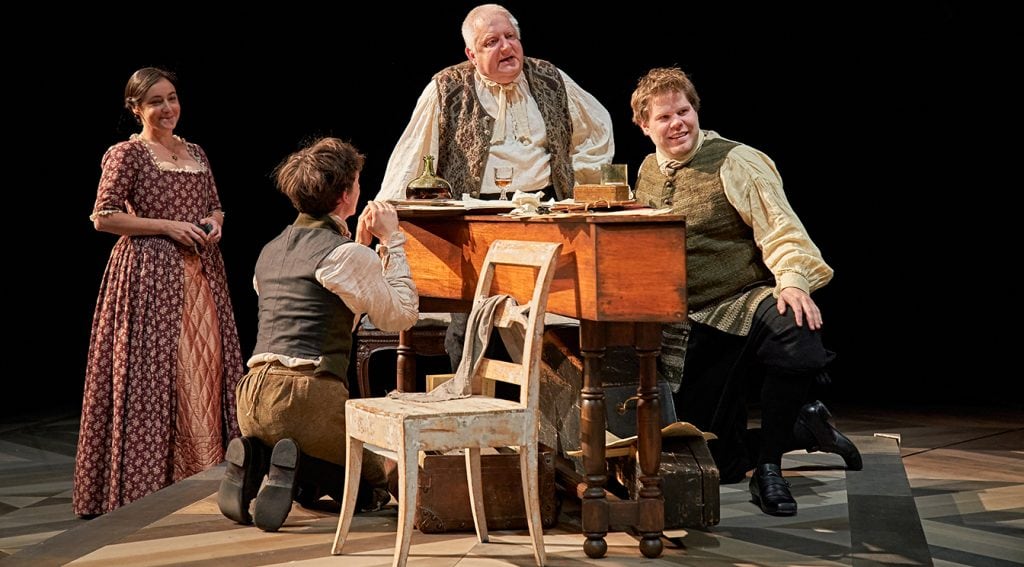Marking the end of Michael Longhurst’s excellent tenure as artistic director, this UK première of Dominique Morisseau’s play is classy in two senses. The production is of the highest quality – director Matthew Xia is justly confident with the terrific script as well as his talented cast. And the subject matter might be said to be class – Skeleton Crew is a specific study of blue-collar workers in Detroit that is detailed, intelligent and moving.
The factory breakroom setting, with dramatic lighting and sound design (from Ciarán Cunningham and Nicola T Chang respectively), is an efficient forum for debates about unionism and moral dilemmas. As redundancy approaches for the characters, with the factory downsizing to the titular staffing levels, this working world might remind you of plays by Arthur Miller or Lynn Nottage, but Morisseau has her own voice – with plenty to say.
It is with its characters that Skeleton Crew excels. There are four heroes here – Dez, Faye, Reggie and Shanita – complex figures who are all magnificent creations. Although they present different approaches, with plenty of argument, none feels like a mouthpiece.

Dez is struggling to set up his own business, his desperation leading to a brilliant plot point, while Shanita is pregnant, a literally growing cause for concern. In the roles, Branden Cook (an astonishing professional debut) and Racheal Ofori stand out, brilliantly revealing their characters’ complexities, making us care about them and adding wit. Reggie, the supervisor who knows first that the plant is closing, is a fantastic study in stress from Tobi Bamtefa, with a visceral performance full of fear, anger and confusion. The trio are figures of great dignity – proud about work, with a sense of purpose from productivity. And I haven’t yet mentioned Faye.
Long-serving union rep, friend and mentor to Reggie, Faye is the linchpin of the play. It is to the credit of all that she does not dominate the show. This could well be a career defining role for Pamela Nomvete, who gives a performance marked by clarity as well as power. Faye’s no-nonsense views and her care for others guide her colleagues – and the audience. But the character has problems, with a twist that brought tears to my eyes. Faye is not a victim – her insistence on this will give you goosebumps. But we are allowed to question whether that praiseworthy pride might also be damaging.
Morisseau can escalate tension with the best of them. But there’s also an interesting take on understatement that Xia is careful to preserve. Anti-climax is mentioned by Shanita, whose dreams (beautifully recounted by Ofori) add melancholic touches, while dramatic moments are curtailed for the sake of realism. And note that Faye doesn’t want Reggie to “write a happy ending” for her. There’s nothing twee in Skeleton Crew. Its power comes from how convincing it is. But how much I hope the future goes well for all its characters indicates how strong the piece is.
Until 24 August 2024
Photos by Helen Murray

